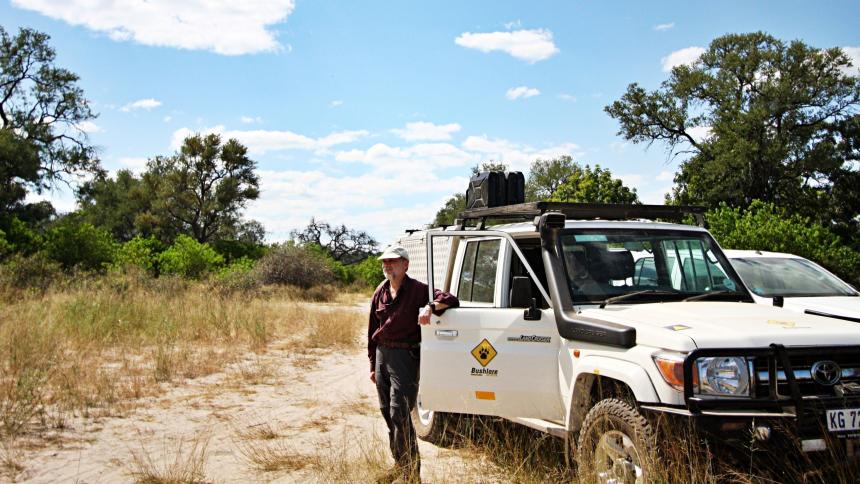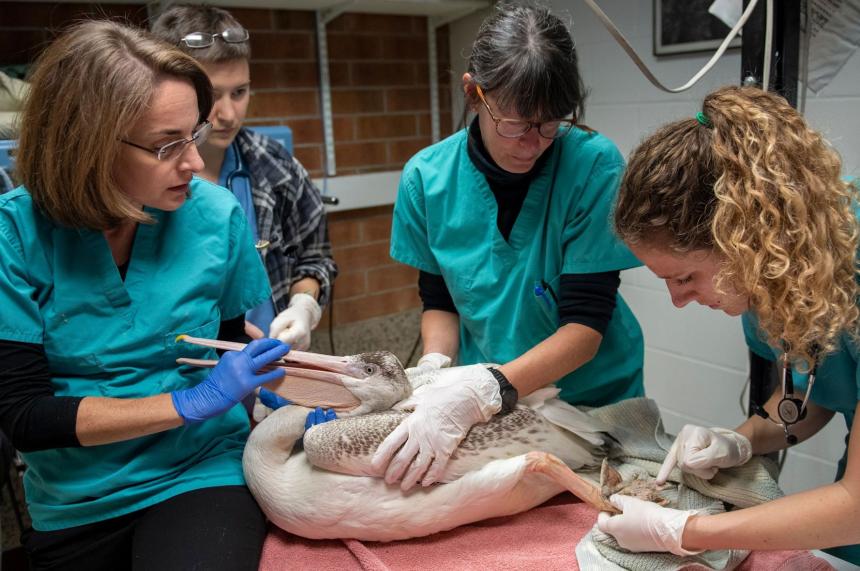In the News

February 03, 2023
A study led by Cornell researchers found that white-tailed deer – the most abundant large mammal in North America – are harboring SARS-CoV-2 variants that once widely circulated but are no longer found in humans.

January 18, 2023
From Ithaca to the plains of southern Africa, the Cornell Wildlife Health Center is working to heal the natural world. Launched in 2020, the center was formed to unite Cornell’s leading wildlife health professionals under a common mission: to repair the fractured relationship between people and nature.

January 16, 2023
The Cornell Wildlife Health Center has launched a new Student Support Fund for off-campus apprenticeships with free-ranging or captive wildlife, on-campus wildlife research, and student travel to present at professional conferences on wildlife health and conservation.

December 09, 2022
Preserving and restoring natural habitats could prevent pathogens that originate in wildlife from spilling over into domesticated animals and humans, according to two new companion studies.

Video
December 07, 2022
It is no longer possible to separate the health of the planet from the health of its people. Disease patterns are changing as the climate does, and human health is at risk from loss of biodiversity, depleted water supplies, environmental toxins, and collapsing food systems.

November 20, 2022
Raina Plowright, a disease ecologist at Cornell University who studies pandemic prevention, has been studying Hendra virus in bats. She advises us to pay attention to bat habitat and to keep bats well-fed and healthy in order to reduce the risk of bat-borne viruses passing from animals into humans.

November 07, 2022
In October 2022, CVM's Department of Public and Ecosystem Health held its first departmental symposium, which featured faculty and staff presentations, a student poster session and a panel discussion.

Video
November 04, 2022
Cornell Wildlife Health Center director Dr. Steve Osofsky takes you on a brief tour of our One Health work around the world.

October 19, 2022
A new avian influenza, H5N1, is circulating rapidly across the country and affecting domestic chickens, wild birds and even mammals. Cornell's Dr. Krysten Schuler states that adding H5N1 as another stressor for birds whose lives are already challenged by climate change will start to have a broad-scale impact.

October 14, 2022
A new perspective piece from Cornell's Dr. Robin Radcliffe highlights the vital relationship between wildlife health and the North American Model of Wildlife Conservation.
